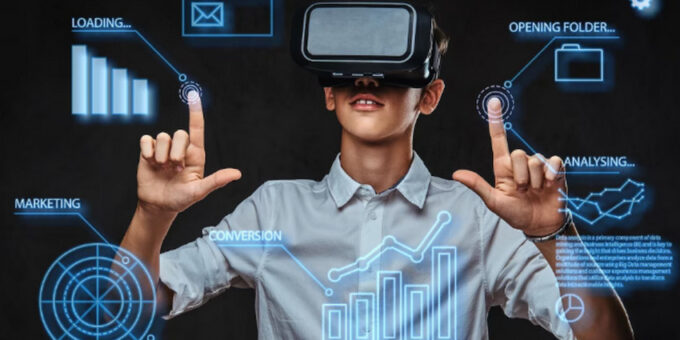
Artificial Intelligence (AI) is transforming industries and redefining how we interact with technology. Its advancements are improving efficiency, solving problems, and creating new opportunities. From healthcare to entertainment, AI’s influence is undeniable and continues to grow.
What Is Artificial Intelligence?
Artificial Intelligence refers to machines simulating human intelligence. It involves learning, reasoning, and problem-solving. AI systems rely on algorithms and data to perform tasks effectively. Unlike traditional programming, AI learns from patterns and adapts over time.
Applications of Artificial Intelligence
AI in Healthcare
AI is revolutionizing healthcare through faster diagnoses and personalized treatment plans. Machine learning models analyze medical data to detect diseases earlier. For instance, AI tools identify cancerous cells in medical scans with remarkable accuracy.
AI-powered chatbots assist patients by answering questions and scheduling appointments. Robots in hospitals are also improving efficiency by handling repetitive tasks. Moreover, drug discovery processes are faster thanks to AI.
AI in Transportation
Autonomous vehicles rely on AI for navigation and safety. Self-driving cars use sensors and algorithms to analyze real-time data. Companies like Tesla and Waymo are making significant strides in this field.
AI also enhances public transportation systems by optimizing routes and schedules. Traffic management tools reduce congestion and improve road safety. The future of transportation depends heavily on AI advancements.
AI in Education
AI improves education by providing personalized learning experiences. Adaptive learning platforms analyze student performance to adjust teaching methods. Virtual tutors help students understand difficult concepts with ease.
Automated grading systems save teachers time by evaluating assignments quickly. AI also enables remote learning, making education accessible worldwide. The combination of AI and education is transforming traditional classrooms.
AI in Everyday Technology
Smart Assistants
Virtual assistants like Alexa and Siri are powered by AI. They perform tasks such as setting reminders, playing music, or controlling smart home devices. These assistants use natural language processing to understand and respond to user commands.
Recommendation Systems
AI recommendation systems enhance user experiences on platforms like Netflix or Amazon. They analyze user preferences and suggest content or products. These systems make online interactions more personalized and engaging.
AI in Social Media
Social media platforms use AI to analyze user behavior and deliver targeted content. Algorithms prioritize posts based on engagement patterns. AI also detects harmful content, ensuring a safer online environment.
Benefits of Artificial Intelligence
Increased Efficiency
AI automates repetitive tasks, freeing up time for more complex work. It handles large data sets faster and more accurately than humans. Businesses use AI tools to optimize operations and save resources.
Enhanced Decision-Making
AI analyzes data to provide insights and predictions. These insights help businesses make informed decisions. For instance, predictive analytics in retail helps forecast demand and manage inventory.
Improved Customer Experiences
AI chatbots and recommendation systems enhance customer interactions. They provide quick responses and relevant suggestions, improving satisfaction. Businesses gain a competitive edge by prioritizing customer-centric solutions.
Challenges of Artificial Intelligence
Ethical Concerns
AI systems may reinforce biases if trained on biased data. Developers must ensure fairness and transparency in AI algorithms. Ethical concerns also arise from AI replacing human roles in certain jobs.
Data Privacy
AI relies on large amounts of data, raising privacy concerns. Users worry about how their information is stored and used. Strict data protection measures are essential to address these concerns.
Job Displacement
Automation powered by AI could replace certain jobs, causing workforce disruption. However, it also creates new opportunities in AI development and maintenance. Balancing automation with human roles is crucial.
The Future of Artificial Intelligence
AI is evolving rapidly, and its potential seems limitless. In the future, AI will likely enhance climate change mitigation strategies. Smart systems will optimize energy usage and reduce environmental impact.
AI will also play a significant role in space exploration. Robots powered by AI could assist in exploring distant planets. Moreover, AI’s integration with robotics will advance manufacturing and healthcare.
Ethical AI development will become increasingly important. Governments and organizations will establish regulations to ensure responsible AI use. Transparency and accountability will guide the future of AI innovation.
Conclusion
Artificial Intelligence is reshaping the technology landscape with its vast applications and benefits. From improving healthcare to transforming education, its impact is profound. While challenges like data privacy and ethics persist, solutions are emerging. By embracing AI responsibly, we can unlock its full potential and build a smarter, more efficient future.